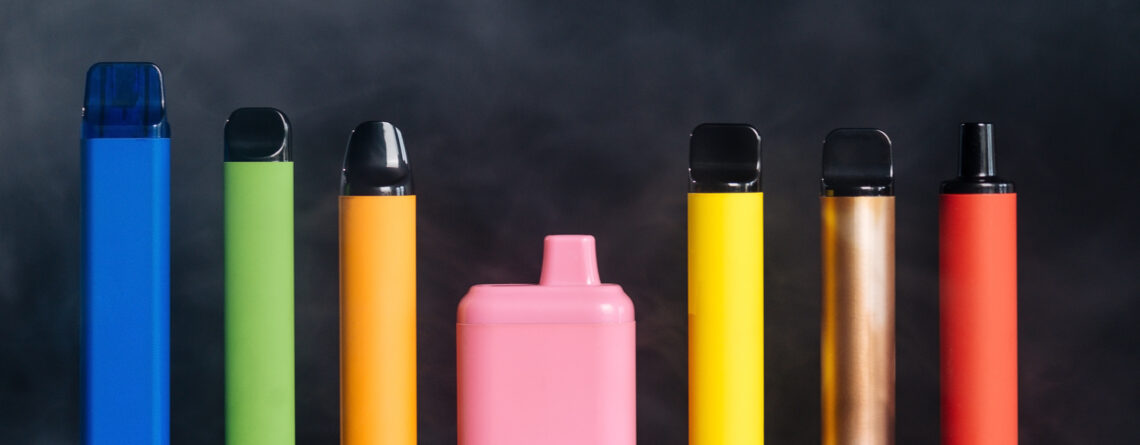Does Vaping Cause Anxiety?
Have you felt more anxious since you’ve started vaping? If so, you’re not the only one. While you might feel that taking a hit calms you down and lowers your stress level, it actually heightens your anxiety and makes you more stressed in the long run.
In fact, studies have found that while vaping and nicotine use provides temporary relief from anxiety, it can lead to greater anxiety overall. Why is this? And how can you start to quit or cut down today? In this post, we’ll discuss some of the biological and psychological reasons that vaping causes anxiety, and we’ll also cover how to quit using proven methods.
Related: What is Substance Use Disorder?
How Does Vaping Make Anxiety Worse?
There are many ways that vaping and nicotine use can make anxiety worse. The ones we’ll cover in this post are how nicotine can increase cortisol levels, create sleep issues, and perpetuate a feeling of shame. Let’s start with what nicotine does to your body.
Vaping Can Increase Cortisol Levels
One of the reasons vaping can make you feel more anxious is because nicotine use can increase cortisol levels in your body. Cortisol is often referred to as the “stress hormone,” and, like many things, it’s good in moderation. It naturally peaks in the beginning of the day and should slowly dissipate as the day wears on until bedtime. It’s often responsible for the feeling of being alert, awake, and – when it’s heightened – being “on edge.”
Without this hormone, you would probably feel pretty sluggish and unmotivated. But, if you have too much, you can feel on edge or anxious at times when you don’t need to be. Vaping and nicotine use can cause cortisol to spike at times of the day when your body should be winding down (like nighttime) or to levels that are physically uncomfortable (creating anxiety).
Essentially, nicotine alerts and activates your body when you don’t require energy or activation. It seems to increase the body’s cortisol beyond what’s comfortable or healthy, making you feel more stressed or anxious than you would if you weren’t vaping.
Related: How to Manage Stress So It Doesn’t Lead to a Breakdown
Vaping Can Create Sleep Issues
If you’ve ever had a bad night’s sleep, you know just how important quality sleep is to your alertness, mood, and overall sense of well-being. And if you struggle with anxiety, you’ve probably felt it get worse if you’ve had a bad night’s sleep. Unfortunately, vaping and nicotine use can rob you of the quality sleep you need to feel calm and regulated throughout the day.
It does so in a couple of ways. First, the craving for a hit of nicotine can cause you to wake up throughout the night. If your body is used to getting a certain amount of nicotine every few hours, it may feel withdrawal symptoms in the middle of the night. Second, since nicotine is a stimulant, it can prevent you from falling asleep if you use it too close to bedtime (like ingesting caffeine too late in the day).
These are two of the main factors that lead to waking up feeling groggy, unrested, and possibly even anxious.
Related: How to Sleep Better Without Medication
Vaping Can Make You Feel Trapped and Ashamed
Have you told yourself this is the last vape you’ll buy? But then, when it dies, you find yourself back in the smoke shop purchasing another one? You’re not the only one. And for many people, this can lead to a feeling of shame which worsens anxiety.
Like with many addictions, you can start spiraling into a cycle of shame when you realize you want to quit vaping, but, for whatever reason, can’t. This uncomfortable feeling of being ashamed can often lead you back to using nicotine as it may be serving as a coping mechanism or way to comfort yourself. But after you use, you may find the shame has come back even stronger. This can agitate your anxiety and get those racing thoughts to spin even faster. And, sadly, the only thing that seems to help with this anxiety is another dose of nicotine, and the cycle continues.
Related: Is Shame Ever Healthy?
How to Quit Vaping
Of course, there’s no silver bullet to put down a nicotine addiction. You’ll probably find that some days are easier than others, and that’s totally normal. One of the most helpful things you can do is listen to other people who have quit and ask for their support. Many of those folks have benefited from relieving stress in other ways.
Some of the best ways to relieve stress is to practice mindfulness and meditation and to exercise regularly. This is one of the simplest ways to calm your body down when you’re feeling a craving for nicotine.
Of course, you don’t have to do it alone. There are smoking cessation groups available in person and via telehealth, and you can find an individual therapist or psychiatrist who can help you overcome this habit.
Please reach out if you need help. Contact us at 1-844-NYSTROM or request an appointment online. We’ll help you find a therapist or psychiatrist who specializes in addiction.
Related: The 3 Easiest Habits You Can Adopt for Your Mental Health in 2024







